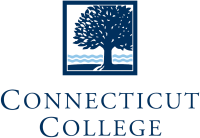Connecticut College, founded in 1911, is a private liberal arts college located in the picturesque city of New London, Connecticut. Often referred to as Conn College, the institution holds a modest student population offering an intimate educational environment on a 750-acre arboretum campus. Celebrated for its close-knit community and emphasis on interdisciplinary learning, Connecticut College provides a blend of academic tradition and innovative teaching.
A distinctive feature of Connecticut College is its comprehensive approach to education, embodied in the Connections curriculum, which encourages students to synthesize knowledge across disciplines. This system stands out by fostering integrative learning pathways, making for a highly customizable and relevant educational experience. Furthermore, the College's Ammerman Center for Arts and Technology is exemplary, offering students opportunities to interweave arts and technology through research and hands-on projects. Conn College is also recognized for its commitment to sustainability, with its Office of Sustainability outlining clear initiatives to reduce its carbon footprint and integrate sustainable practices across campus operations and curricula.
Connecticut College prides itself on a history of achievements and a strong commitment to social responsibility. The College is known for producing a significant number of Fulbright scholars, showcasing its dedication to academic excellence and global engagement. Additionally, the school's active participation in community service is highlighted through partnerships with local organizations and the Holleran Center for Community Action which coordinates service programs and internships. The institution also boasts a thriving arts scene, with the Lyman Allyn Art Museum located directly on its campus, providing students and the wider community with access to a valued cultural resource.
However, Connecticut College is not without its challenges. As with many institutions of its kind, the college faces the issue of maintaining affordability and access in the face of rising education costs. While the college aims to provide considerable financial aid, the struggle to balance budgeting without compromising quality education remains a concern. Additionally, as the job market evolves, there is a growing demand for programs that are directly aligned with specific career paths, potentially putting pressure on liberal arts institutions like Connecticut College to adapt and justify the broader educational approaches they champion in an increasingly specialized and outcome-oriented world.



